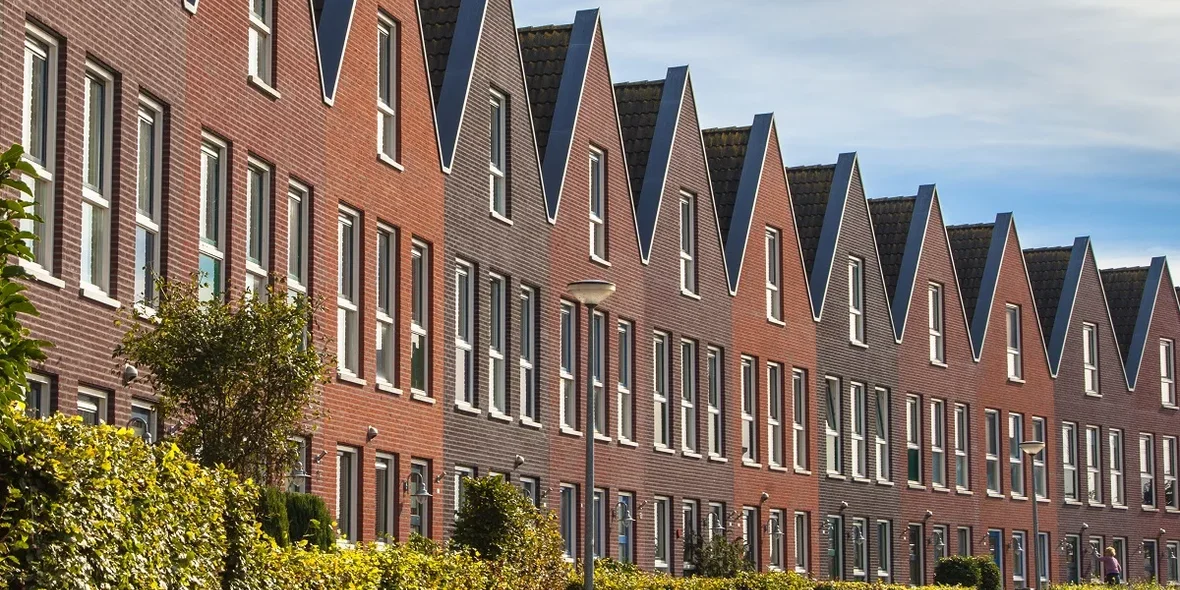
Now is not the time to buy a housing? Financial Times forecasts and experts’ opinions
The global housing market is at a «tipping point». After a pandemic real estate boom in late 2021, the sector is preparing for the most serious slowdown since the financial crash of 2007-2008.
The Financial Times did the research, based on data from Oxford Economics, a consulting firm. We’ve highlighted the main points and share them with you:
- Analysts call the end of 2021 hardly not the best time to own real estate — at this time in 38 countries of the OECD (Organization for Economic Co-operation and Development), home prices rose at the fastest pace in 50 years. Factors such as record-low borrowing costs and accumulated savings among buyers contributed to this.
- Now, nearly a year later, the situation has changed dramatically: the global cost-of-living crisis and the economic shock of Russia’s conflict with Ukraine are all leading to housing prices rising faster than incomes, and mortgage payments are becoming increasingly unaffordable for homeowners.
- On this basis, experts conclude that the richest countries in the world are likely to be followed by the largest housing market decline since the financial and economic crisis of 2007-2008; and this, in turn, will inevitably increase the pressure on the weakening economies. IMF predicts that in the worst case scenario, over the next three years, real housing prices in the advanced economies could fall by 10%, and in emerging markets — 25%.
«This is the most worrisome prospects for the housing market since 2007-08, when markets are fluctuating between the outlook for a modest decline and a much steeper decline,» said Adam Slater, a leading economist at Oxford Economics.
- The slowdown of residential real estate prices is mainly influenced by mortgage rates — in recent years they have reached the highest level in the entire «eurozone», the U.S., Australia, Canada, and New Zealand.
- In September, people in the «eurozone» have taken loans to buy homes for 30% less compared to the same period in 2021. But there are exceptions: some countries (in particular Japan, Italy and France) are in a better position — it is associated with a fairly moderate increase in prices and relatively low levels of household debt.
- However, analysts agree that there should not be such a double-digit drop in the housing market, as during the previous financial and economic crisis. This is because unemployment should no longer be as severe as it was 15 years ago; and in many markets (such as the U.S., Great Britain, South Africa, Spain, and Denmark) households have less mortgage debt relative to income than before the 2007-08 crisis.
Experts' opinions
Olesya Kress, realtor
— As for the German market, in which I work, a slight decline in real estate prices is noticeable. Take Stuttgart as an example: there, a three-bedroom apartment used to cost on average 370 thousand euros, now it costs 330-340 thousand euros. But it should be understood that this situation is attractive only to those clients who have the full amount of money to buy the property.
For those who take out a mortgage, to buy a property even more expensive because of rising interest rates. For example, previously, buyers could take a mortgage loan at 1%, but now at 3% (and in some cases, even at 4% and 5%). It turns out that by taking a loan, a person pays an additional 20 thousand euros or more to the bank as interest on the loan.
Despite this, there is demand, people continue to buy, but not as actively and boldly as before. And also, people have become thriftier and more conscious of their daily expenditures.
Svetlana Kasatkina, Managing Partner of Exotic Property.
— I, as an expert, can talk about Thailand: I do not expect a sharp decline in prices and a serious market correction, we have not yet reached our peak. This is especially true for Phuket, because on this island, prices have not risen as much as in the UAE; plus on Phuket the number of proposals is limited, there are restrictions on construction, there are no high-rise buildings (maximum 7 floors). Therefore, there will still be demand. Now the demand is probably even greater than the number of proposals. A slightly different situation may be in Pattaya, because there is already high-rise construction (certainly not as high as in Dubai), but nevertheless.
For example, the UAE during the pandemic was almost open and there was already a growth and a big increase in property prices; plus they have huge complexes with a lot of apartments. In the UAE there is a boom and a huge rush, everything is sold out instantly — so it is very likely that in the UAE there will be a market correction (which has happened more than once).
Thailand, on the other hand, was closed during the pandemic, the market stood still and prices didn’t go up. They only started to rise gradually in 2021. The number of buyers has increased too, but it was always like that: we have pronounced seasonality and before the pandemic the loading situation was the same as it is now (October-November — high season; December, January — peak season; February, March — high season; summer — low season). So, to summarize, there should not be a sharp decline in the housing market in Thailand.
Author
I am responsible for editorial work. I write expert interviews and guides.



















